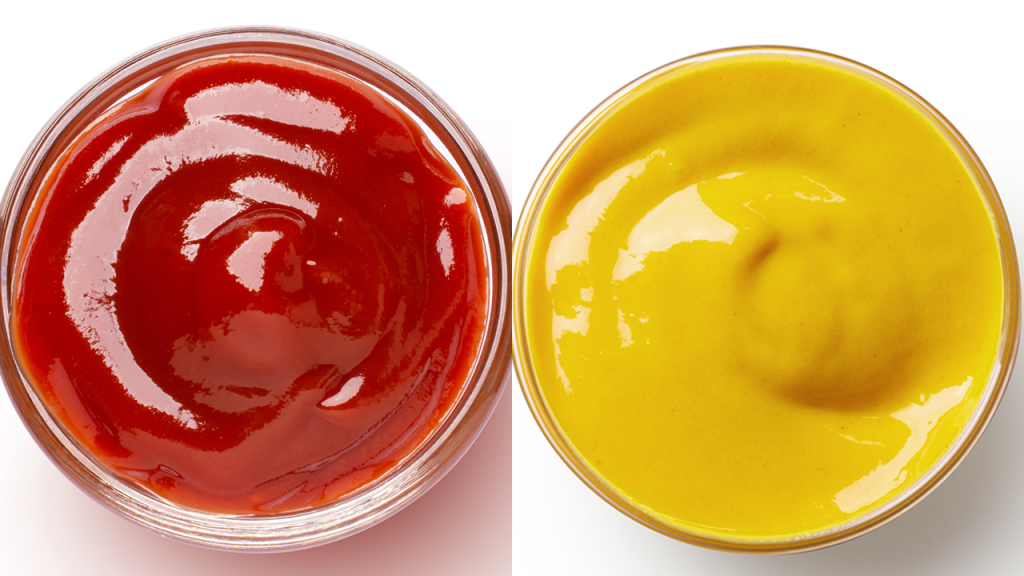Ketchup and mustard are commonly used condiments that can add flavor to a variety of dishes, but their nutritional profiles vary significantly based on the ingredients used. Ketchup typically contains tomato, vinegar, sugar, salt, and spices, with some brands incorporating additional seasonings like jalapeños and cayenne. It is a good source of lycopene, an antioxidant known to protect against prostate cancer. Mustard, on the other hand, includes mustard seed, vinegar, salt, and spices, and is typically free of sugar, trans fats, and cholesterol.
Ketchup is often criticized for its high sugar and sodium content, with many brands containing added sugars and high fructose corn syrup. The American Heart Association recommends limiting added sugars to 25 grams per day for women and 36 grams for men, so it’s important to check the label for added sugars when choosing ketchup. Mustard, with its lower calorie content and absence of high fructose corn syrup, is generally considered a healthier option compared to ketchup. However, the choice between the two condiments ultimately depends on individual health goals and preferences.
While ketchup can be beneficial as a source of lycopene and as a masking food for picky eaters, excessive consumption can lead to an intake of added sugars that may negatively impact health. On the other hand, mustard’s health benefits include turmeric for color and curcumin for anti-inflammatory properties. Mustard can be a healthy choice for those looking to avoid sodium in their diet and consume a condiment with minimal sugar content. When choosing ketchup or mustard, it’s essential to be mindful of the sugar and sodium content to ensure they fit into a balanced diet.
In terms of calorie content, one serving of mustard is typically listed as zero calories due to the FDA’s rounding rules for foods with less than five calories per serving. Mustard is also low in calories, as most serving sizes consist of 3-5 calories and about 110mg of sodium. Conversely, ketchup contains about 19 calories per tablespoon, with the primary ingredients being tomatoes, vinegar, sugar, and salt. The choice between ketchup and mustard ultimately comes down to personal preferences and health goals, with mustard generally being considered the healthier option due to its lower calorie and sugar content.
Both ketchup and mustard can be incorporated into a healthy diet when used in moderation and with attention to their sugar and sodium content. It’s advisable to opt for ketchup brands with no added sugars or high fructose corn syrup and to choose mustard with natural sweeteners like real sugar. Individuals trying to reduce sugar intake may prefer mustard over ketchup, while others may enjoy ketchup in moderation. Ultimately, the decision between ketchup and mustard depends on individual dietary needs and preferences, with both condiments offering flavor and versatility to a variety of dishes.


